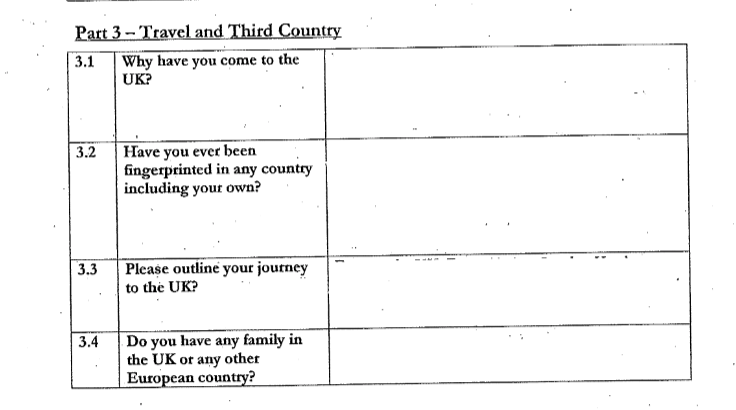- BY CJ McKinney

Human trafficking: High Court orders emergency fix to asylum screening interviews
THANKS FOR READING
Older content is locked

A great deal of time and effort goes into producing the information on Free Movement, become a member of Free Movement to get unlimited access to all articles, and much, much more
TAKE FREE MOVEMENT FURTHER
By becoming a member of Free Movement, you not only support the hard-work that goes into maintaining the website, but get access to premium features;
- Single login for personal use
- FREE downloads of Free Movement ebooks
- Access to all Free Movement blog content
- Access to all our online training materials
- Access to our busy forums
- Downloadable CPD certificates
The High Court has ordered the Home Office to interview asylum seekers properly and remind its caseworkers about the correct legal test for kicking off an investigation into human trafficking. Mr Justice Fordham granted the interim relief, or temporary holding measures, pending a full hearing in the case next month. A useful summary of the decision appeared in the Guardian on Friday and the full interim relief judgment was published yesterday as DA & Ors v Secretary of State for the Home Department [2020] EWHC 3080 (Admin).
People who claim asylum in the UK are immediately asked a series of questions, known as a screening interview. During the pandemic, the Home Office has shortened screening interviews for public health reasons, running them on a “truncated basis at around 15 to 18 minutes long”. That means leaving out crucial questions designed to pick up on indicators that the asylum seeker has been trafficked.
These are questions 3.1 and 3.3 of the “asylum screening pro forma” questionnaire, shown below. The Home Office’s own guidance on screening interviews tells caseworkers to pay attention to the answers to these questions as they may reveal indicators of trafficking. But those questions are not, at present, being asked at all.

Fordham J accordingly found:
In my judgment, and on the basis of the material currently before the Court and the submissions that have currently been made to the Court, it is strongly arguable that the Home Secretary is acting unlawfully in curtailing asylum screening interviews by asking a narrower set of questions than those which are identified in her published policy guidance.
The claimants had asked for the full questionnaire to be temporarily reinstated, which “would be likely to double the length of the interview”. Fordham J rejected that application but ordered as interim relief that questions 3.1 and 3.3 be urgently reinstated:
The Defendant [Home Office] shall ensure as soon as possible but at the latest by 4pm Monday 16 November 2020 that Asylum Screening Interviews in all cases must involve asking Question 3.1 (“why have you come to the UK?”) and Question 3.3 (“please outline your journey to the UK”) set out at pages 66-67 of the Asylum Screening and Routing Guidance (version 5, 2 April 2020)…
The wider context of the case is “the ‘risk indicator’ arising out of transit through Libya” and “the appropriate legal threshold” for referring someone as a possible victim of human trafficking. Fordham J found that it is “strongly arguable… that something has gone wrong” with the UK authorities’ approach to asylum seekers who have travelled through Libya, given the country is currently riddled with slave markets. As such, and again pending a full hearing, he ordered the Home Office to up its game on this front:
The Defendant shall confirm to the Court by 4pm on 16 November 2020 that she has taken steps which satisfy her that those conducting asylum screening interviews are aware of the following two points:
(a) The test for an NRM referral to the Single Competent Authority is “any suspicion” that a person has been trafficked, as set out at paragraphs 31(1) and 33(3) of R (TDT (Vietnam)) v Secretary of State for the Home Department [2018] EWCA Civ 1395 [2018] 1 WLR 4922.
(b) There is evidence of a particular risk to migrants of being forced into modern slavery whilst in Libya.
All these are only holding measures, and the findings against the Home Office preliminary. A rolled-up hearing of the full claim for judicial review is scheduled for 16 and 17 December.
Earlier this month, the same judge ordered a temporary halt to evictions from asylum accommodation.
